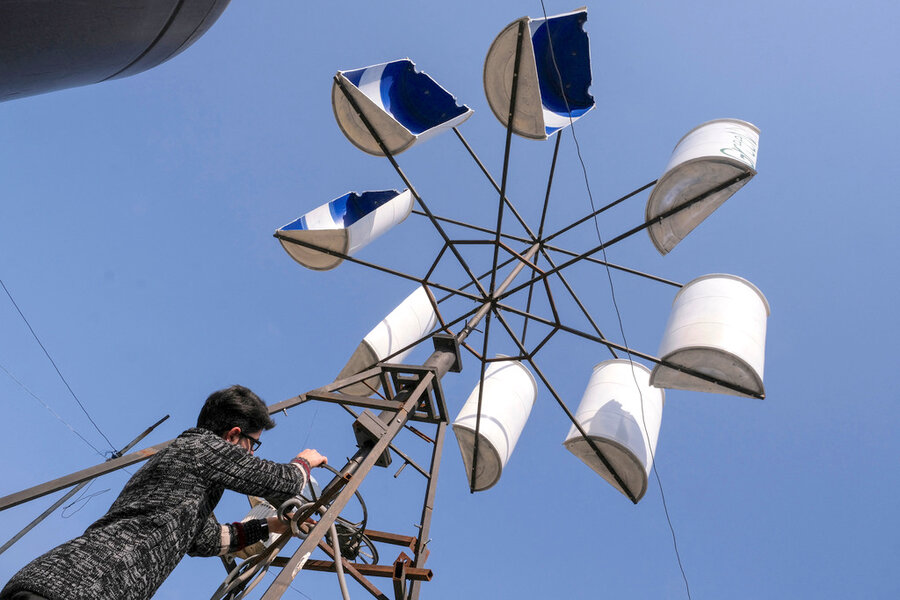Green energy from the grassroots
Loading...
The world’s industrial superpowers – the United States, Europe, and China – are now in open competition for resources and talent to create a green-energy future. The European Commission, for example, revised its rules today for sourcing raw materials needed for batteries in response to moves by the U.S. and China. Yet a focus on this struggle may miss a potential game changer in climate action: citizen-led action on renewable energy.
A new study of more than 30,000 citizen-led energy projects in Europe – ranging from rooftop solar panels to public electric-vehicle charging stations – points to a new era of energy democracy shaped by abundance and shared security. Published this month in Scientific Reports, the study done by Western Norway University provides the first quantitative measure of how climate change is compelling societies to bind together in new ways to reinvent prosperity and stability.
Energy security in the 20th century was largely managed by governments and major companies. Yet the transition to renewables could pivot on energy projects that rely on broad-based participation – or equality and inclusivity. The World Bank estimates that investments in green energy need to triple by 2030 and that up to 70% of that capital will come from private sources.
The investors need not all be giants. The European study found that more than 2 million people across 30 countries invested $12 billion in renewable energies and cut consumption between 2000 and 2021. Collectively, they produced or saved enough electricity to provide power for an equivalent number of people in the survey.
Almost everywhere, the switch to renewables is engaging new players. In the West African country of Ghana, the government has enlisted civil society in drafting an energy transition plan. In Canada, long-neglected Indigenous communities are now key partners in more than 200 public and private renewable energy projects. Examples like these show that the energy future will not rise and fall alone on the quality of governance. The energy transition also marks a social transition, one that ensures a central role for citizens.
“Much of the reluctance to do what climate change requires comes from the assumption that it means trading abundance for austerity,” wrote Rebecca Solnit, co-editor of the forthcoming anthology “Not Too Late: Changing the Climate Story from Despair to Possibility,” in The Washington Post. Part of that abundance, she adds, is cooperation and generosity, which are essential for a viable future.







